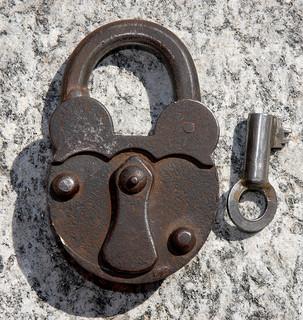 The most common reason people have their accounts hacked is due to lost or stolen passwords. Despite the attempts to protect this sensitive data, people still get their passwords stolen or hacked into at a frightening rate. Here are some tips to protect your passwords which you may use for your most important accounts. This will lower the risk of someone coming across the passwords inadvertently or on purpose, both online or offline.
The most common reason people have their accounts hacked is due to lost or stolen passwords. Despite the attempts to protect this sensitive data, people still get their passwords stolen or hacked into at a frightening rate. Here are some tips to protect your passwords which you may use for your most important accounts. This will lower the risk of someone coming across the passwords inadvertently or on purpose, both online or offline.
1) Text files
One of the things you can do to protect your passwords is to hide them in a text file in a remote location on your hard drive where someone who uses your computer will not look. For example, hide the file with your passwords in a file called TO DO LIST rather than calling it “PASSWORDS,” so that someone seeing the file will not know that is where you hide your passwords. Then locate the file in a remote location, such as on an external hard drive, a USB flash drive, or other removable media. It is possible to hide this file safely on your main hard drive as well, but it may be easier to locate.
2) A secret notebook
Keeping your passwords in one place in a secret notebook only you know the location of, is a good idea. This allows you to locate all of your passwords quickly when you need them, without searching through endless piles of paper, while keeping it secure from prying eyes. The key to this system is making sure that you put the notebook in a secure location. It does no good to have all of your passwords together in one notebook if you are keeping it out for others to see. This is especially true in a working environment, but you should also not allow children to have access to sensitive information and passwords to accounts.
3) Sky Drives
Another option is that you could keep your password information on a sky drive, such as Google or others. As long as you trust the security of the online drive, it is a good way to have easy access to your information at a moment’s notice without keeping it somewhere on a hard copy or physical notebook or file.
4) Hard Media
Hard media, such as CDs and DVD backups are an excellent way to keep a copy of passwords or important data without housing the passwords in a physical notebook or on your computer. The only disadvantage to this is that you will have to put the CD or DVD in a drive each time you wish to access it. While a little inconvenient, having the information on one disc, rather than a central location like your computer may lower the risk of people getting their hands on your important passwords.
5) One More Trick to Protect Your Passwords
A trick I used to do with my bank cards is to write the pin number to one card on the back of another card and vise-versa, rather than on the card it actually belonged to. This tricks someone who might find your card into thinking that is the password and they will try it over and over until the bank rejects it and notifies the bank it has been compromised. Likewise, put the password to specific accounts in locations other than with that account information, such as on a separate drive. Make a note to yourself somewhere on your main PC about this as you think you will forget. The point is to confuse a potential hacker to where they will not know where to look.
These are only a few simple approaches to protect your passwords, but it is worth the extra time to think like a criminal and imagine where you would look if you were to break into either your house or computer to look for them. Putting them in a remote location, such as a sky drive, on hard disk, or a separate text file might do the trick. Whatever you decide to do, don’t make it obvious. And remember to take extra precautions when you are planning a long trip. This is when people are most likely to get robbed and oftentimes nowadays, the first place they head is to your computer.
Aaron Mills is a blogger who writes on behalf of companies such as Protectyourbubble.com ID theft provider.
